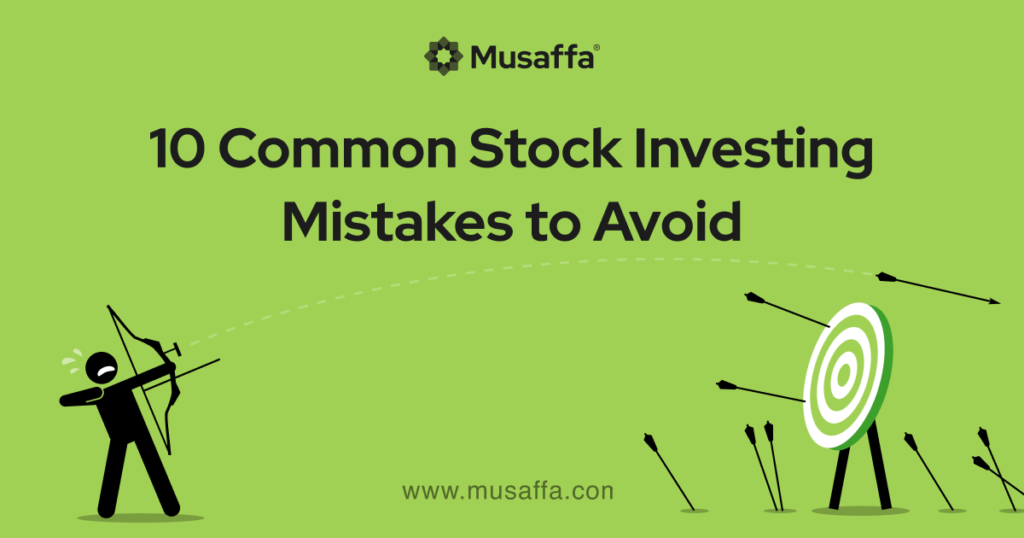Every single human in the entire world wants to earn money to fulfill their wants as well as their desire. Majority of them even does hard work to achieve their goals but ends up having just small amount of money which is just good as to survive. 80% of the population is earning the amount which helps them to fulfil their wants not their desires. They make some huge common investment mistakes while deciding about their finance and about investing it. Mostly, people misunderstood saving same as of investment. But no, they both are different.
Investment has ability to grow your money if done with the utmost care or else it has the power to make you broken.
Investing can be one of the most effective ways to grow your wealth over time, but it’s not without risks. Many investors, especially beginners, make avoidable mistakes that can cost them valuable time and money. Here, we’ll explore 8 common investment mistakes and how to steer clear of them.

1. Lack of a Clear Investment Plan
One of the biggest mistakes is jumping into investing without a clear plan. Many people start buying stocks or other assets without defining their financial goals, risk tolerance, or time horizon.
How to Avoid It: Take the time to outline your financial objectives. Are you saving for retirement, a house, or your child’s education? Determine how much risk you’re comfortable taking and set a timeline for your goals. A well-thought-out investment plan will serve as your roadmap.
2. Chasing Market Trends
Trying to time the market or jumping on the latest investment trend can be tempting, especially when you hear success stories. However, investing based on hype often leads to buying high and selling low.
How to Avoid It: Stick to your investment plan and focus on long-term growth. Conduct thorough research before investing and avoid making emotional decisions based on market noise.
3. Failing to Diversify
Putting all your money into a single stock or asset class can lead to significant losses if that investment underperforms. Lack of diversification exposes you to unnecessary risks.
How to Avoid It: Spread your investments across different asset classes, industries, and geographic regions. Consider using mutual funds or exchange-traded funds (ETFs) to diversify your portfolio easily.
4. Ignoring Fees and Expenses
Investment fees and expenses can eat into your returns over time. Many investors overlook these costs, which can significantly impact long-term growth.
How to Avoid It: Pay attention to expense ratios, management fees, and transaction costs. Opt for low-cost index funds or ETFs, and avoid frequent trading to minimize fees.
5. Letting Emotions Drive Decisions
Fear and greed are powerful emotions that often lead to poor investment choices. Selling in a panic during market downturns or buying impulsively during bull markets can derail your financial goals.
How to Avoid It: Stay disciplined and stick to your long-term investment strategy. Regularly review your portfolio but avoid reacting to short-term market fluctuations.
6. Neglecting to Rebalance
Over time, your portfolio’s asset allocation can drift due to market performance. Neglecting to rebalance can leave you with a riskier or less optimal portfolio than you intended.
How to Avoid It: Periodically review your portfolio and rebalance it to maintain your desired asset allocation. This might involve selling overperforming assets and buying underperforming ones.
7. Overestimating Your Risk Tolerance
Many investors believe they can handle high levels of risk until the market experiences a downturn. Panic selling during a market correction often results from overestimating risk tolerance.
How to Avoid It: Be honest about your comfort level with risk. Consider starting with a more conservative portfolio and gradually increasing exposure to riskier assets as you gain experience.
8. Not Investing at All
Perhaps the most costly mistake is failing to invest altogether. Fear of losing money or waiting for the “perfect time” often leads to missed opportunities for growth.
How to Avoid It: Start investing as soon as possible, even if it’s with a small amount. The power of compound interest means that time in the market is more valuable than timing the market.
Final Thoughts
Avoiding these common investment mistakes can significantly improve your chances of achieving financial success. Remember, investing is a marathon, not a sprint. Stay informed, stay disciplined, and always keep your long-term goals in mind. With a clear strategy and consistent effort, you can navigate the investment landscape with confidence.
Read More: https://wealthfitlife.com/top-10-best-investment-apps-for-beginners-and-pros/
FAQs
1. What are the most common investment mistakes beginners make?
Beginners often make mistakes like chasing high returns, timing the market, or failing to diversify their portfolio.
2. How can emotional decisions impact investment outcomes?
Emotional decisions, like panic-selling during market dips or overbuying during booms, can lead to significant losses and missed opportunities.
3. Why is diversification important in investing?
Diversification helps reduce risk by spreading investments across different asset classes, industries, or geographic regions, minimizing the impact of a single underperforming asset.
4. What’s the danger of trying to time the market?
Timing the market is nearly impossible to do consistently and can result in missing out on significant gains during unexpected market rallies.
5. How does ignoring fees and expenses affect long-term returns?
High fees and hidden expenses can erode your returns over time, especially with compounding, significantly reducing your wealth.
6. What role does a financial plan play in avoiding investment mistakes?
A financial plan provides clarity, defines goals, and ensures investments align with long-term objectives, reducing the risk of impulsive decisions.
7. Why is it risky to invest without proper research?
Investing without research can lead to uninformed decisions, poor asset selection, and potential financial losses.
8. How can overconfidence in investing lead to losses?
Overconfidence can result in taking excessive risks, neglecting due diligence, or investing in high-volatility assets without understanding the potential downside.
9. Is avoiding all risks in investing a mistake?
Yes, avoiding all risks often leads to overly conservative investments, like holding too much cash, which may not keep up with inflation or grow wealth effectively.
10. How can one recover from past investment mistakes?
Learning from mistakes, reassessing your financial strategy, and seeking professional advice can help you get back on track and avoid repeating errors.

Pingback: Dividend Investing Strategy: How to Build Passive Income for Life” - WealthFitLife